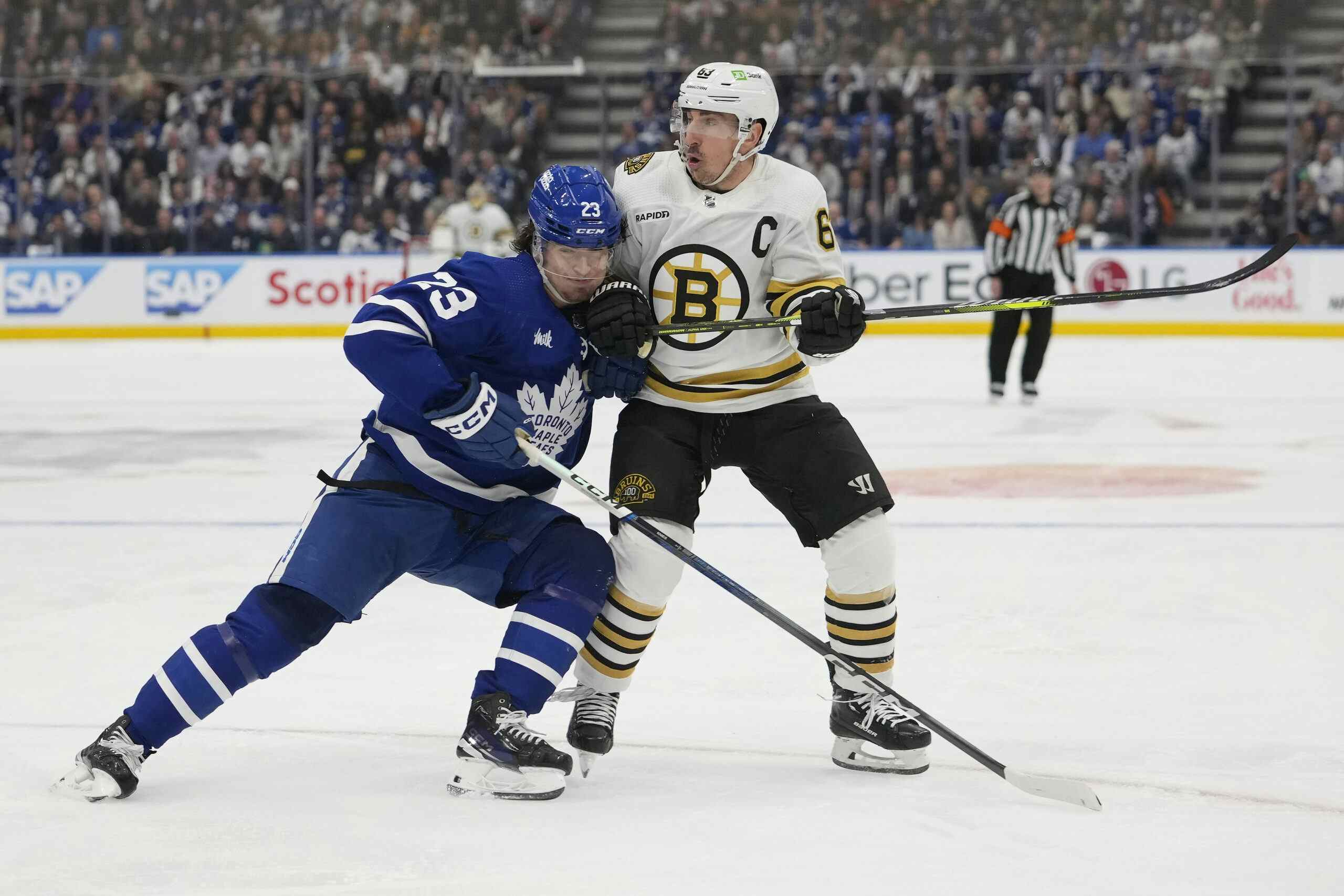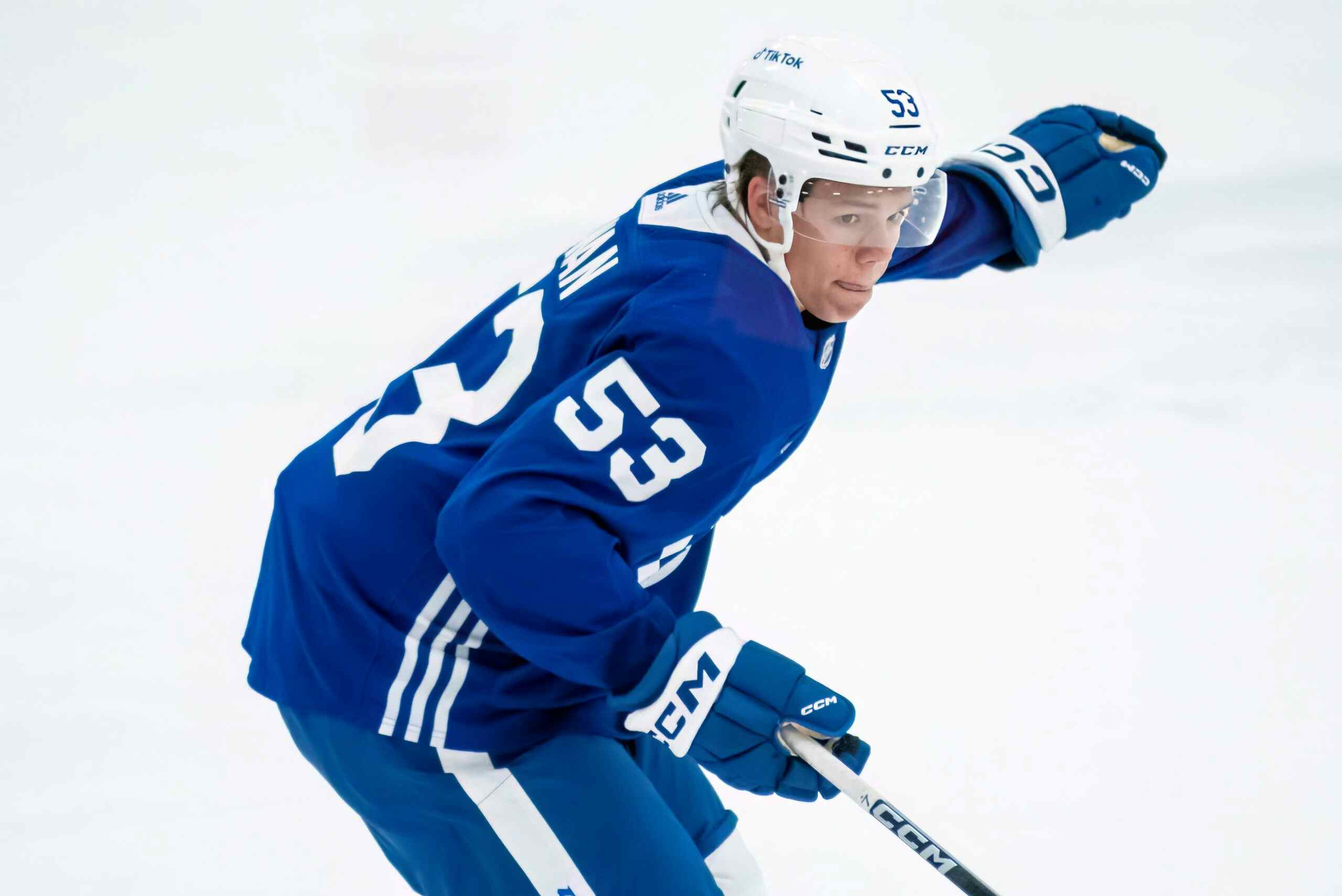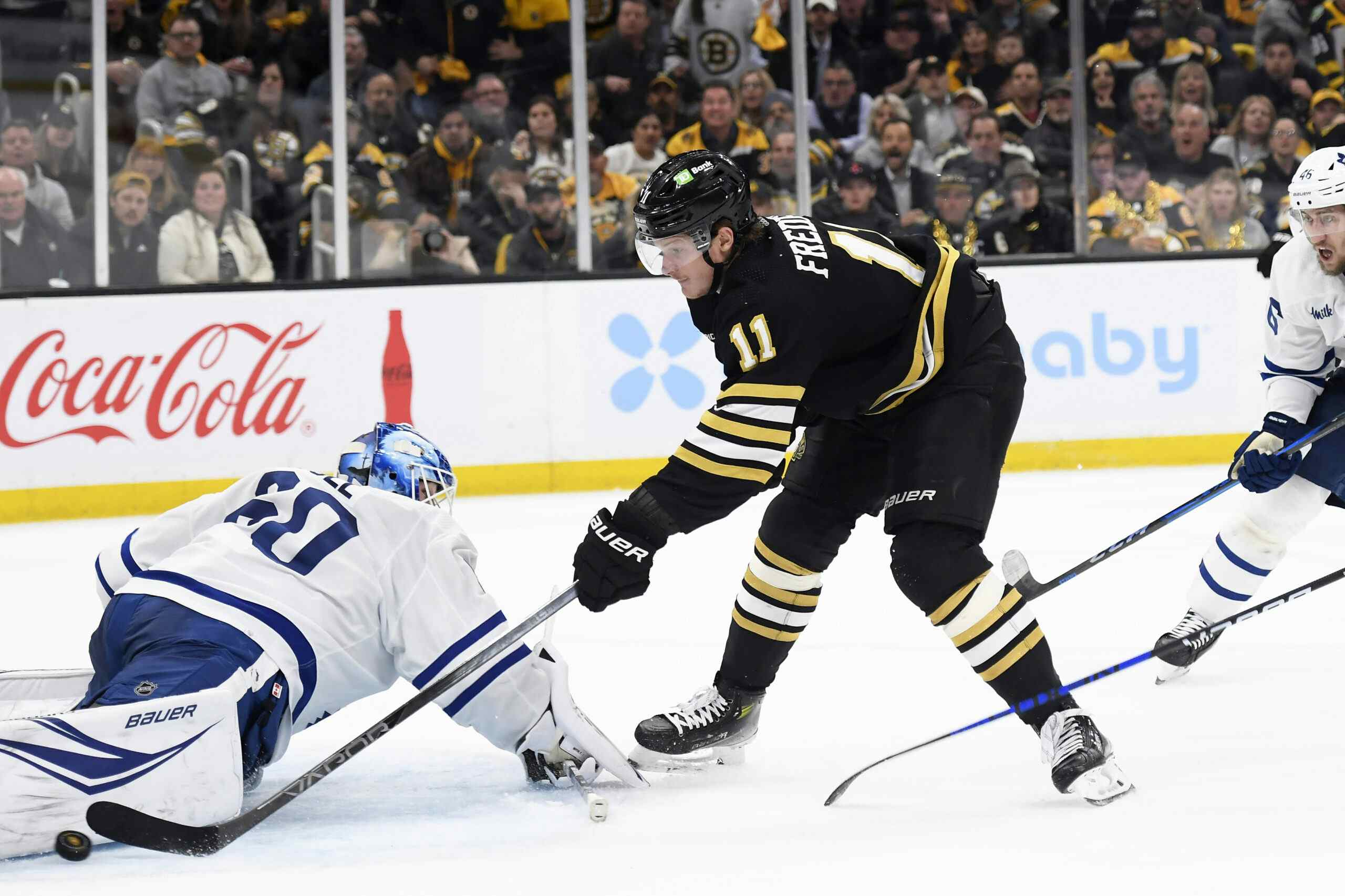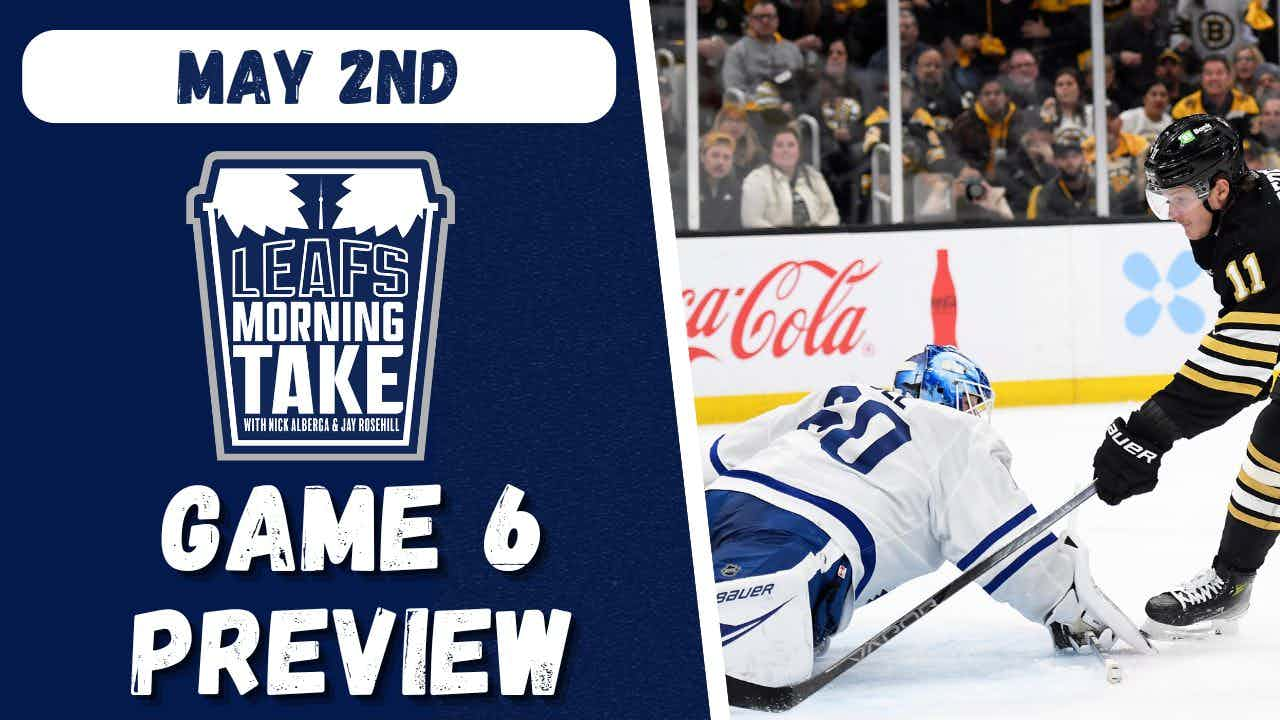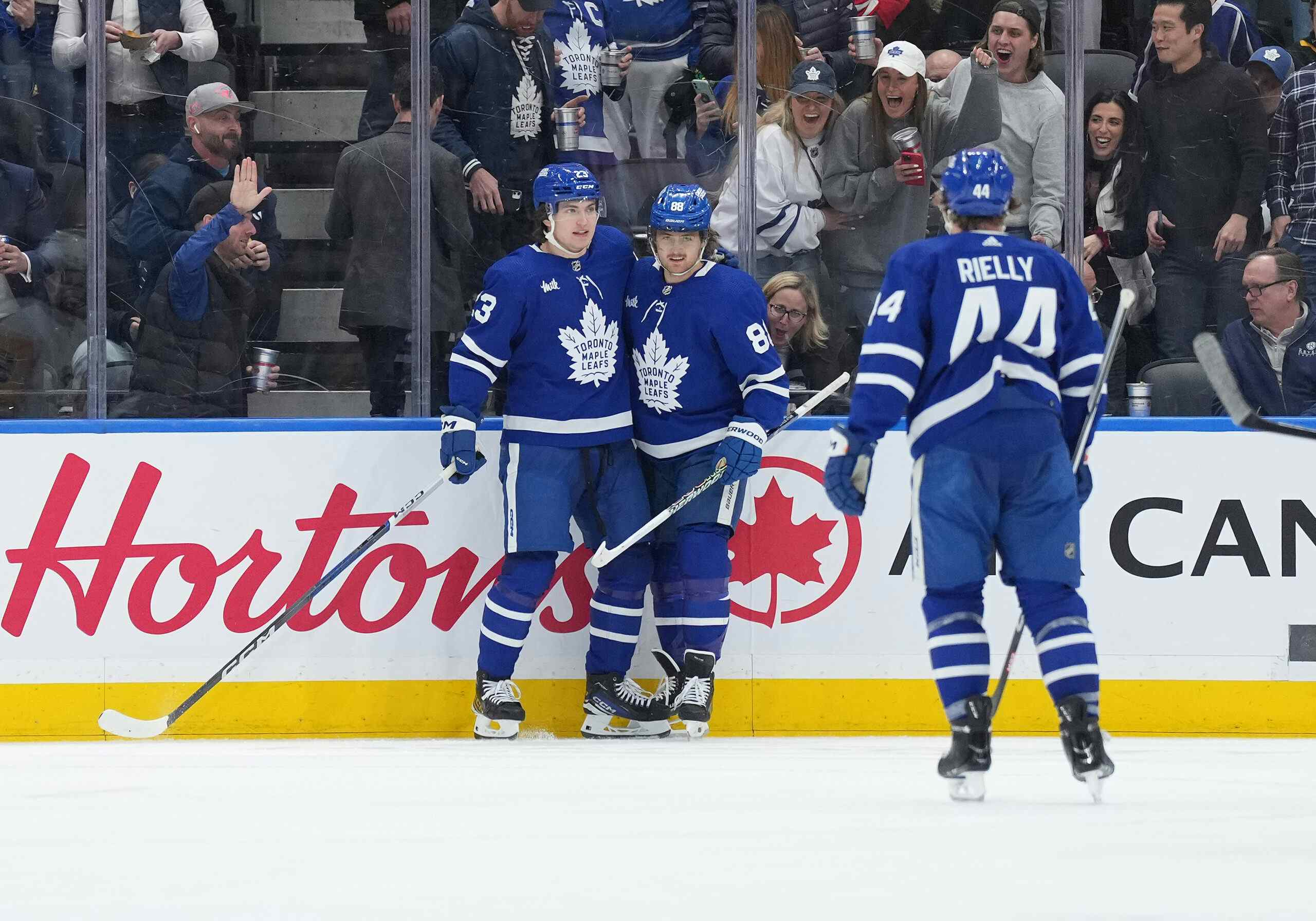Brian Burke bites back against the “rats”
By Cam Charron
12 years ago
Normally, a hockey team waiving Colton Orr or another player of Orr’s enforcer ilk wouldn’t be newsworthy enough for the General Manager to even sign his name on the press release, but, Thursday afternoon in Toronto, Brian Burke held a conference with reporters to discuss the state of the game.
Colton Orr, coming off a concussion which ended his season, is known primarily as a pugilist, recording 921 penalty minutes and exactly 100 fights (his 100th being his only scrap this season, against Shawn Thornton, and very likely the last of his career) in his 378 career games. He has played just 12 playoff games, all with the New York Rangers, and it’s not a surprise that he has nary a fight in any of them and has averaged just 4:21 of playing time.
His role is no longer relevant in the NHL. As the games increase in importance, the amount of fights decline, and the amount of dressed enforcers decreases. Their ice-time is cut and you no longer need guys who work hard to make the team to play, since all the playing time is being given to players who can actually skate an NHL level.
Burke talked about the “systematically reduced” strategy behind fighting in the game, which he’s bang on about. The problem is that Burke, to reporters today, looked at this reduction as a negative while I see it more as a positive. There are your outliers, but, generally, there is no correlation between the number of fights a team gets into and the number of wins a team has. That could be split up, if we picked apart certain game situations, or say that teams with more injuries are also forced to give more ice-time to fighters, but from a distance it doesn’t seem like a positive.
There is a nostalgic and honourable belief that the fighter protects your players. “I wonder where we’re going, where Brendan Shanahan’s getting six hearings every two days,” Burke said in his conference. “I wonder, the accountability in our game and the notion that players can stick up for themselves and each other, I wonder where we’re going with that.”
You can feel Burke. His Toronto Maple Leafs, a team he built preaching “pugnacity, testosterone, truculence and belligerence,” has fallen, after a hot start, to 20th in the National Hockey League and after a three-year rebuild with Burke at the helm still have work to do. Like Burke’s Leafs, there are many teams who are playing the right way who aren’t seeing that bear out in the standings, while successful organizations have taken the reverse stand. The agitators employed by the Vancouver Canucks and Pittsburgh Penguins play no small role in ensuring their continued presence atop their divisional standings.
The Boston Bruins and New York Rangers, while employing a couple of players who can step up and throw down, Burke’s way, also keep along a cast of skill players who know how to draw a penalty or two. Brad Marchand, now a Stanley Cup Champion, is quickly becoming a reviled persona around NHL rinks he plays. But at the end of his career, the only thing people may remember are the words “Stanley Cup Champion”. Burke is right that hockey is changing. But it’s changing in a way that will give skill players a chance, without the threat of a heavyweight trying to beat them by punishing them physically. Teams are starting to try and defend and counter-attack against skill. Where does that leave Colton Orr? It means him and players of his ilk will have to play bigger and punch harder to have a chance to be noticed on the ice in any way other than the minus-column.

It isn’t the fighters that deter the rats, as Burke has charged. The fighters have become the rats, goading a host of middleweight hockey players into fights and ultimately allowing themselves to be suckered into penalties by the smaller, skilful pests Burke so despises. Recent suspensions in the league have been handed to Dan Carcillo, Krys Barch, Deryk Engelland. Andy Sutton even has been known to drop his gloves, having been in seven fights since the start of last NHL season including four fights in his 19 games this season. The worst offenders in recent history, Todd Bertuzzi, Jody Shelley, Marty McSorley, Chris Simon, Jesse Boulerice, all guys that Burke would attest stand up for themselves. You can’t give a physical player carte-blanche to run around and expect that the game will be better for it.
While Sidney Crosby sits on the shelf with a concussion, there are a host of other stars who Burke agrees are making the game “the best it’s ever been”. His own Phil Kessel, Claude Giroux, the resurgent Alexander Ovechkin, Patrick Kane and Jonathan Toews. Burke lost his job in Vancouver amid his adamant protection of the young Swedish twins he moved mountains to draft: Daniel and Henrik Sedin, who have back-to-back scoring titles to their name. Not one of these guys is known for tough play as well as scoring. What holds them back is the thought that there’s a Zac Rinaldo, a Cody McLeod or a Zenon Konopka around to do something stupid, like hit a star player from behind, in order to goad a member from the other team into a fight.
Burke is right. When those stars are on, when each team has three or four guys who can put the puck in the net on a regular basis, the game is at its best. “It’s fast. It’s exciting,” agrees Burke. He also said that “if there’s no dance partner for Colton, it’s pretty hard to not be able to say, ‘well, Darryl Boyce gives up more on a given night, or whoever. Joey Crabb.’ We made the same judgment,” and it’s the right judgment. Recent history tells us (within the last three years), the teams that throw the Colton Orrs on the ice in place of the Joey Crabbs are the ones who have been losing.
When Burke laments that he doesn’t need Colton Orr in the lineup, doesn’t that mean that the game has hit an evolved stage that the NHL hasn’t seen since the 1970s? The teams don’t need the enforcers in the lineup to feel protected. They just need less of them. And if that allows Steve Downie to poke Dion Phaneuf a little bit, the Leafs are one of the growing number of teams that don’t see it worth it to bring Colton Orr into the lineup, much less put him on the ice, to draw Downie’s attention away from Phaneuf. It’s no longer necessary to rent a barn and go at it, like the time when men were men. Many of today’s superstars should be willing to take the two minute power play that’s accompanied by a cheap hit from one of Burke’s rats. If they aren’t, at the very least they shouldn’t feel compelled to get revenge.
“To the purists, they represented everything evil about the game,” charged a Toronto Star sportswriter about the new pests who were ruining the league. But that was oldtimer Frank Orr discusssing the Broad Street Bullies of old. The game evolved to accomodate them in a manner that Brian Burke loved, and the game is evolving past them in a way that Brian Burke hates.
Change or die, Brian. It’s just evolutionary.
Recent articles from Cam Charron

